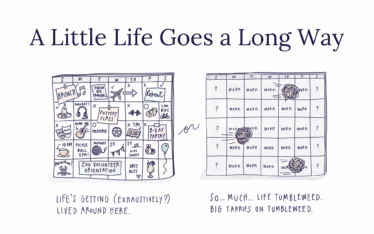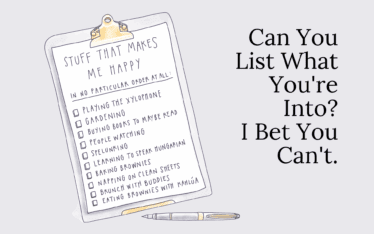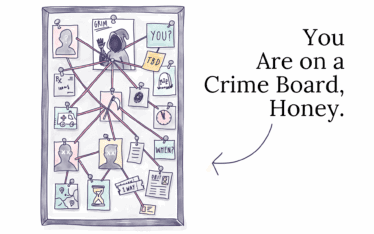We’ve already spoken about the 9 ways you are boring yourself to death, slowly but surely, during our global pandemic. Before this topic of boredom thoroughly bores you, I have something else to share with you about habits (you know, the things you think successful and highly effective people have more of than you do).
Habits? They suck. (The life out of you.)
A little background on habits, and how they’re killing us:
For many of us, happiness can be found by engaging in habits and routines that are just that– habitual, routinized, predictable, and nestled in that comfort zone that feels right for a while… until it doesn’t. Many of us experience a kind of happiness paradox that tugs upon our simultaneous desire for control and our need for newness and the unexpected. Some of us have that niggling spidey-sense that our comfort zones really aren’t all that comfortable anymore anyway, while for others our lives have issued more formal SOS calls– riddled with the anxiety that is boredom’s bosom buddy– to break out of our ruts.
Regardless of whether we’ve been gently nudged or slapped in the face by boredom, we often feel stuck in the dull, monotonous versions that our lives have slipped into. Characterized by questions like, “is this all there is?” and the deep-seated admittance that, “I could be playing this game of life so much better,” we usually know when we’re asleep at the proverbial switch of life, and often lack the momentum to turn the switch back on. It sometimes seems as though our fear of death is rivaled only by our fear of living. Yikes.
Habits: they will snuff the life out of us (almost) every time.
All too often we succumb to doing the same thing day after day and week after week in pseudo-satisfying trances that we sometimes confuse as helpful things called habits. We’re highly functioning zombies who can hardly believe where the gong show of 2020 has gone… how did it get to be the middle of October already? We slip into autopilot all too fast with routines that let us feel even the smallest bit in control of a world that has spun off its axis: getting up at the same time, making the coffee, eating our toast, logging into the Tuesday status update meeting like good little corporate robots, wrapping the day up with a predictable assortment of hulu, Prime and HBO. The routines that initially provided comfort became a tad smothery, no?
Habits, according to Aristotle, are the soul of morality, while other thinkers over time (like Proust, Kant and Spinoza) have condemned them for providing a false sense of security, dulling our senses and essentially deadening our ability to experience life as though we were actually alive.
How does habit cross the line from being the blessing that brings order to our lives to the curse that bores our lives to tears? The double law of habit introduced by the French philosopher Ravaisson helps us understand the inherent tension between active and passive routines; active habits refer to the orderly motions and good judgements made as a result of ritualized activity (e.g.: committing to a date night every Thursday with that special someone), and passive habits are the side effects of the very efficiencies gained from being active: the numbing of our sensations, the familiarity that breeds contempt (e.g.: having date night turn into a total snoozefest. Maybe try the Kung Pao chicken for a change?).
Some routines might not bore us to tears but are also killing us slowly, like checking your email first thing in the morning, as the coffee brews, to “get ahead of the day”… and then feeling overwhelmed before your first sip of coffee, because of the 17 urgent emails that make you feel like you for sure don’t have time for that YouTube yoga thing you’ve been wanting to try.
We can be deliberate about designing our lives in ways that account for this alternating tension of yawning comfort vs. a healthy joie de vivre (zest for life). We can take stock of the habits that serve us (like brushing, flossing and rinsing) and keep them, and maybe break out of the mundane routines that are preventing us from participating in our lives.
This is not a rocket-science situation: sit down, write out the things you do on autopilot that 1. serve you, 2. that suck the life out of you, and 3. those that are a combo of both (like that fine line when Netflix makes your life good, until it auto-starts a new show that lobotomizes you without your permission). Look at your list, and pick one thing on the “Sucks The Life Out of Me” category. Put a wrench in that routine’s plans this week, and see what that does to your life.
Blasting through boredom puts us on the path towards vitality. 2020 sucks, but it doesn’t have to suck the life out of us.







